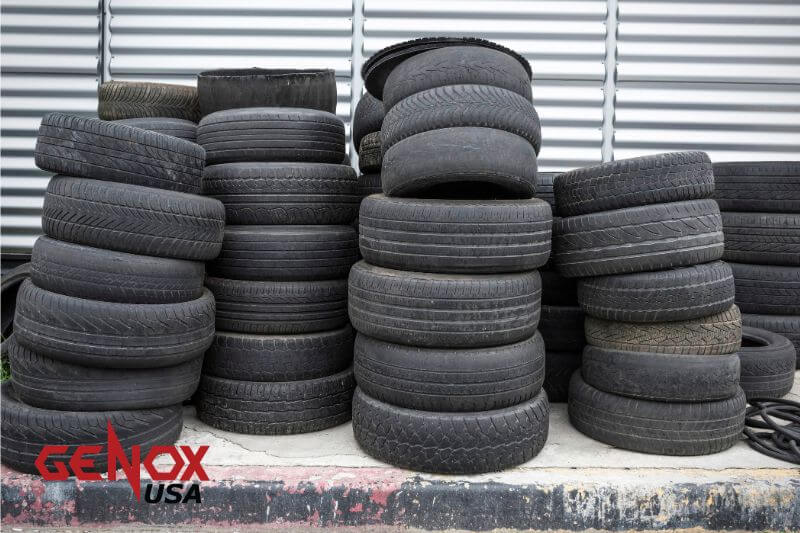Introduction to Tire Recycling
Recycling tires is crucial for several reasons. First and foremost, it helps prevent the environmental hazards posed by tire piles, which can become breeding grounds for pests and disease vectors while also presenting a fire risk. Moreover, tires take up valuable space in landfills, where they can take centuries to decompose. By recycling them, we can conserve landfill space and reduce the burden on our environment.
Advanced Tire Recycling Technologies
Genox recognizes the importance of tire recycling and has developed state-of-the-art equipment to streamline the process. Their tire recycling technologies are equipped with advanced machinery capable of efficiently processing scrap tires into valuable raw materials. These materials include fibers, steel, and rubber, all of which can be reused in various applications.
Rubberized Asphalt: Enhancing Road Surfaces
One innovative use of recycled tire material is in the production of rubberized asphalt. By incorporating crumb rubber, which is finely ground recycled rubber, into asphalt mixes, it enhances the durability and performance of road surfaces. Rubberized asphalt not only extends the lifespan of roads but also provides a quieter and smoother driving experience for motorists. Additionally, it offers a sustainable solution for disposing of scrap tires while reducing the demand for virgin rubber in road construction.
Manufacturing Rubber Products: Promoting Sustainability
Another application for recycled tire material is in the manufacturing of rubber products. From playground surfaces to athletic tracks, recycled rubber is finding its way into a wide range of products. By utilizing recycled tire material, manufacturers can create high-quality goods while reducing their environmental footprint. This closed-loop approach to manufacturing promotes sustainability and resource efficiency.
Tire-Derived Fuel: A Cleaner Alternative
Furthermore, Genox’s tire recycling technologies enable the production of tire-derived fuel (TDF). TDF is a cleaner alternative to traditional fossil fuels and can be used in cement kilns, pulp and paper mills, and other industrial facilities. By harnessing the energy content of scrap tires, TDF helps reduce greenhouse gas emissions and dependence on non-renewable energy sources. It’s a win-win solution that addresses both waste management and energy needs.
Pyrolysis: The Future of Recycling
Talk about pyrolysis and how it can take tires back to their chemical form and produce fuels and solvents.
Monetizing Scrap Tires: Selling Used Tires for Recycling
Moreover, Genox provides opportunities for businesses to sell used tires for recycling, turning a potential liability into a valuable resource. By monetizing their scrap tires, businesses can offset the costs of tire disposal while contributing to sustainable resource management. It’s a win-win situation that promotes environmental stewardship and economic efficiency.
Work with Genox USA to Work Towards a Greener Future
In conclusion, tire recycling plays a vital role in preserving our environment and conserving valuable resources. With millions of tires being discarded each year, finding innovative solutions for recycling is essential. Genox’s cutting-edge technologies offer efficient and sustainable ways to process scrap tires into valuable raw materials.
Whether it’s producing rubberized asphalt, manufacturing rubber products, or generating tire-derived fuel, Genox is leading the way towards a greener future. By partnering with Genox, businesses can take proactive steps towards sustainable waste management and contribute to a cleaner, healthier planet.

